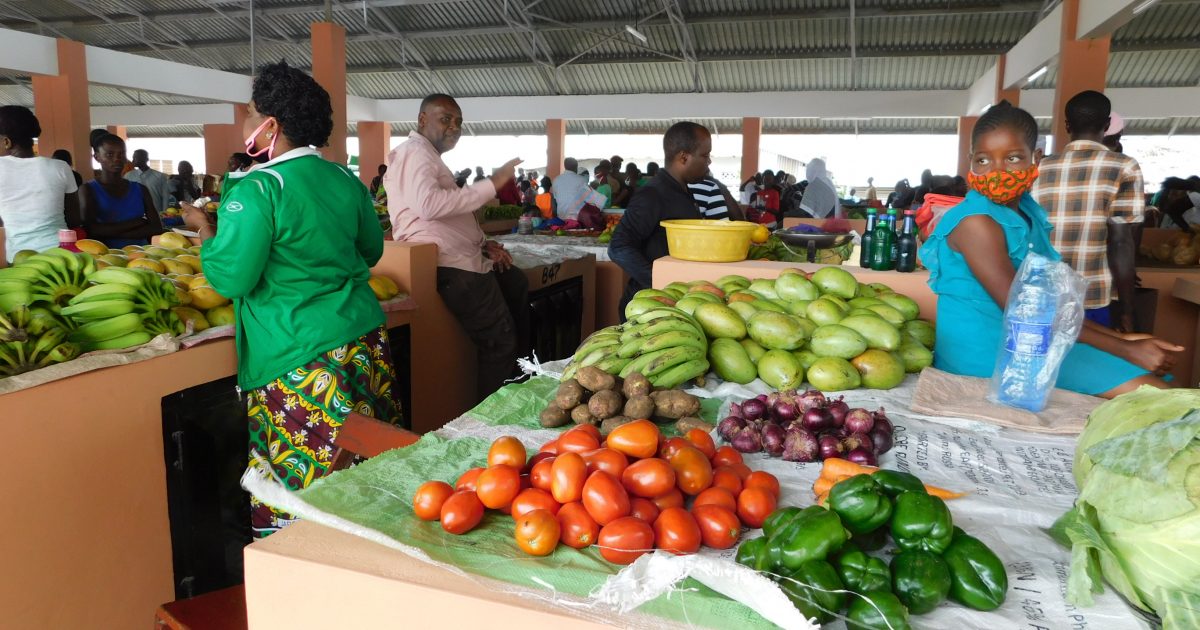Most traders at the Gongoni market in Magarini Sub County of Kilifi County have deserted the facility less than eight months after Governor Amason Kingi commissioned it.
The Sh32.8 million market, which has a capacity of 146 shops that include 114 grocery shops, 15 fish shops, eight eateries and nine general shops is almost empty even as hundreds of traders are operating in the open air around the gigantic facility.
A spot check conducted by the Kenya News Agency revealed that less than 20 out of the 146 traders that were allocated spaces are operating inside the market.
Less than 15 out of the 114 grocery shops are occupied and only one out of the eight eateries within the market is doing business within their allocated space, leaving almost 100 grocery shops and seven eateries unoccupied.
None of the fish shops were operational. The fish traders had instead erected makeshift platforms using rafters tied with ropes just outside the market to sell their merchandize as the fish shops gather dust.
The place also looked disorganised, with tents and mabati structures dotting the area around the market. The tents were being used by grocers while the mabati structures were being used by wholesalers.
Traders who spoke to journalists said most of their counterparts had opted to move out to protest at the Kilifi County Government failure to force wholesalers doing business outside the market to move inside the market.
They asked the county government to force all wholesale and retail traders to either move within the market or do their business far away from the facility to enable those who have not moved out to access customers.
Those doing business inside the market complained that business was poor because their counterparts are operating from outside, thus intercepting customers wishing to buy goods at the market.
The traders also complained that the Sh. 5,000 rent charged for eateries, the Sh2, 000 for the general shops and the Sh400 for the grocery and fish shops was too high and asked the county government to lower the rent.
Mzee Yusuf Shee Ahmed, an elder in Gongoni Township, urged all traders working outside the market, whether retailers or wholesalers to move back into the market.
He also called on the County Government of Kilifi to reduce the rent charged for the shops and eateries within the market, arguing that what the county administration was charging was exorbitant and the traders were not able to afford.
Binti Ali Shee, a trader, blamed the committee overseeing the operations of the market. She complained that the committee had allowed some people to operate from outside, thus disadvantaging those inside as customers do not reach them.
“What is complicating the matter is the issue of wholesalers, because the wholesalers are selling commodities at the same prices being charged by retailers. The retailers buy from the wholesalers, but they have to compete because the wholesalers are also doing retail trade,” she said.
She said that some shops had been rented, but the tenants were nowhere to be seen, yet when others ask for the spaces, they are told they are fully occupied. She called for all the empty spaces to be reallocated to mama mboga who did not get spaces at the beginning.
Ms Ali said beside the high rental fees, the traders were also forced to pay Sh15 daily as taxes to the county government, Sh10 daily for watchmen and Sh10 per visit to the toilet. She asked the county government to post county askaris instead of using private ones.
Renson Ruwa Charo, another trader, also asked the county administration to force all people, including the wholesalers, to move to the market, adding that this would make the county government get its revenue as traders work in harmony.
Joseph Kazungu faulted leaders for being negligent and refusing to heed to the cries of wananchi. He said the county government went into a big loss when it constructed a Sh14 million wall that was later demolished by the Kenya National Highways Authority which claimed the wall had occupied a road reserve.
Lenny Maitha Mwarogo, a youth selling tomatoes and onions within the market said many traders who had been allocated shops had been forced to close shop and go home as they were incurring losses, sentiments echoed by Mzde Omar Fondo. None of the wholesalers agreed to speak to the media.
However, Kilifi County Executive Committee Member for Trade and Cooperatives Nahida Mohamed confirmed that the Gongoni market was operating way below capacity due to wrangles between wholesalers and retail traders.
She said there had been a longstanding dispute between two groups of traders with the retailers asking the county government to force the wholesalers to move into the shop, something that could not be immediately sorted out.
“The problem does not emanate from the county government but from the traders themselves. We have tried in vain to bring them together so they can strike a compromise, but both parties have adopted hard-line stances,” he said.
Ms Mohamed said she had personally held meetings with the traders and the local administration, the latest being on Tuesday, but a compromise was yet to be struck. She however said the county government was doing all its best to resolve the issues for the market to operate optimally.
by Emmanuel Masha/Jesse Matere/Rita Kariuki




